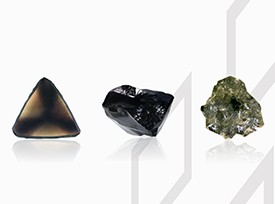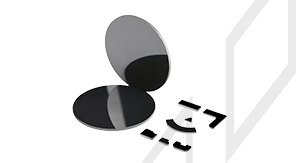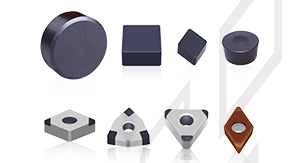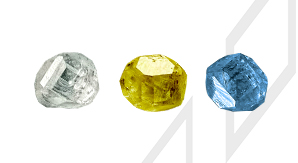The service life and efficiency of resin bond diamond/CBN grinding tools depend not only on the selected super abrasives, but also on the bonding ability between abrasives and bond. But in practice, diamond and CBN are brittle materials. Due to the reasons of production and processing, there are often some crystal defects and inclusions on the surface and interior of the abrasives. The above defects are relatively common in the abrasives selected by resin bonds, which cause they have low impact strength and easily break and lose their grinding function in the grinding process. On the other hand, due to the close covalent bond structure of diamond and CBN, it is difficult to infiltrate the resin bond well because of its high surface energy, and there is basically no chemical (or metallurgical) bond between the abrasive and the bond, which leads to the mechanical mosaic bonding between the abrasive grain and the bond, and the binding force of the bond to the abrasive grains is weak. All those problems will seriously affect the performance of resin bond superhard grinding tools, so whether it is to increase the strength of abrasives, improve the utilization rate of super abrasives or improve the bonding ability of abrasive with bond, it is necessary to improve the physical and chemical properties of the abrasive surface.
Surface coating technology generally refers to the use of surface treatment technology to make other materials coating, deposition, coating on the super abrasive surface, so that the abrasive surface changes in state, shape or physical chemistry, and it is commonly known as surface coating of super abrasive. As a coating material, it is usually metal, such as copper, nickel, titanium, etc.; the thickness of the coating can range from tens of nanometers to millimeters; at present, the more mature coating technologies are chemical coating and electroplating technology. The surface of the coated super abrasives has the general properties of the coating material. The coating can be chemically bonded to the surface of super abrasives, or it can be physically deposited or bonded. The purpose of surface coating is to endow superhard material grains with special physical and chemical properties, so as to improve its application effect.
According to the industrial test and theoretical analysis, compared with the super abrasive coated without metal coating on surface, the super abrasive with metal coating on surface has the following advantages:
(1)The abrasive strength can be increased by 20%~60%. After chemical coating and electroplating of super abrasive, on the one hand, the brittleness of resin diamond and CBN is improved, which can withstand the impact of large external force; on the other hand, in the process of coating, the plating solution penetrates into the cracks, pores and voids on the abrasive surface, thus repairing the defects and strengthening the resin diamond and CBN grains.
(2)The wettability of resin bond to abrasive surface is improved. After chemical coating and electroplating, the surface layer of super abrasives has the properties of similar metals, and the bonding strength between metal and resin is higher than that between abrasive and resin, thus the bonding performance of abrasive is improved and the durability of grinding tools is improved. The study shows that when dry grinding cemented carbide, about 70% of the abrasives are not fully utilized and fall off directly. Once the resin diamond and CBN with metal coating are used, this situation can be greatly changed.
(3)Metal-coated resin diamond and CBN have good thermal conductivity and electrical conductivity. The grinding heat generated in the grinding process is first transferred to the metal coating, and quickly transferred to the surrounding bonds through the metal coating, and the metal coating acts as a good thermal barrier, so the accumulation of grinding heat is less, and the probability of decomposition of the resin bond around the resin diamond and CBN is much less, which ensures the bonding ability of the bond to the abrasives and gives full play to the grinding effect of the abrasive.
Compared with nickel-coated one, the hardness of copper-coated resin diamond or CBN abrasive surface is softer, the corrosion resistance is poor, and the thermal conductivity is better; two different coatings can be used in resin bond grinding tools; because the strength of nickel coating is much higher than that of copper, it has a strong supporting and strengthening effect on low-strength abrasive. In particular, the prickly coating is very beneficial to the service life of resin bond grinding tools.
Although the surface-coated super abrasive has many excellent characteristics, it must be pointed out that the coated abrasive also has some disadvantages, which are mainly because the self-sharpening of diamond and CBN is affected, so the power consumption of the machine tool is increased in the grinding process (about 10%~20%). Therefore, when using the super abrasive treated by coating, the formula of the resin bond must be adjusted properly, otherwise the grinding wheel will not come out of the edge, block or burn the workpiece.

CBN/DIA Superabrasive
Improve grinding efficiency to a new level
PCD Blank
Improve the comprehensive competition advantages of cutting tool manufacturer
PCBN Insert
Substantially improve cutting efficiency and tool life
HPHT Lab-grown Diamond
Protecting the environment and creating art and beauty with technology is the tireless pursuit of Funik